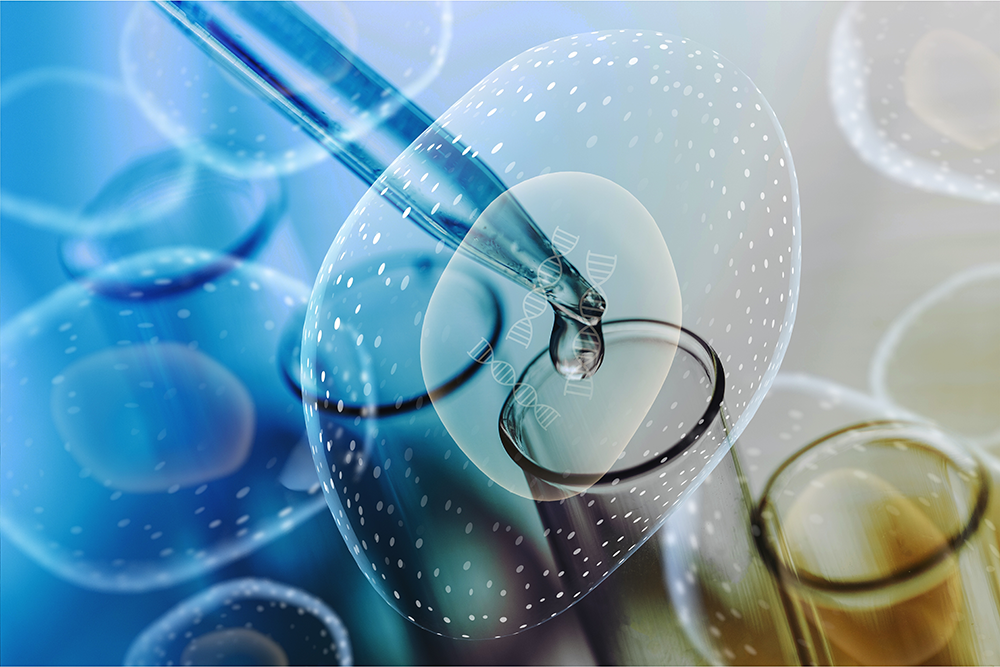Sample preparation is a critical step in Liquid Chromatography-Mass Spectrometry (LC-MS)-based proteomics, essential for extracting, digesting, and enriching proteins prior to analysis. It is performed to overcome the complexity of biological samples, where proteins exist in diverse forms and concentrations. Challenges in sample preparation include efficient protein extraction, digestion, and cleanup, as well as addressing matrix effects and ensuring sample compatibility with LC-MS instrumentation.
Among the various methods available, the In-StageTip (iST) sample preparation approach offered by PreOmics® stands out as a robust solution. iST simplifies the sample preparation workflow by integrating protein extraction, digestion, and cleanup into a single In-StageTip device. This method ensures efficient extraction of proteins from diverse sample types while minimizing sample loss and maintaining integrity. Furthermore, iST facilitates controlled enzymatic digestion within the In-StageTip, optimizing peptide generation for downstream LC-MS analysis. The customizable elution conditions of iST enable selective enrichment of peptides, enhancing sensitivity and specificity in proteomic profiling. Moreover, iST mitigates matrix effects by selectively retaining peptides of interest while removing contaminants, resulting in cleaner samples for accurate and reproducible LC-MS analysis. Overall, iST offers researchers a reliable and efficient solution for sample preparation in LC-MS-based proteomics, empowering them to obtain high-quality data for their research endeavors.
Eight Major Challenges and Solutions in Proteomics Sample Preparation
1. Efficient Protein Extraction
Achieving efficient protein extraction from complex biological samples is vital for accurate proteomic analysis. Variability in extraction efficiency can lead to inconsistent results, posing a challenge for researchers. PreOmics' iST technology offers a streamlined and robust solution. With iST, researchers can trust in reliable, robust, and reproducible sample preparation. The integrated workflow ensures maximum protein solubilization with minimal hands-on time, delivering increased peptide and protein IDs in record time, suitable for various tissue and cell types in drug development and biomarker discovery.
2. Optimized Protein Digestion
Complete and reproducible protein digestion is essential for generating peptides suitable for LC-MS analysis. Incomplete digestion can compromise data quality, presenting a challenge for researchers. PreOmics iST ensures increased reproducibility with a high R2 (>0.9). Through controlled enzymatic digestion within the In-StageTip, iST technology optimizes digestion parameters, ensuring consistent digestion efficiency across samples.
3. Sample Cleanup and Fractionation
Biological samples often contain contaminants that can interfere with downstream analysis, requiring cleanup and fractionation steps. Cleanup and fractionation are crucial for removing contaminants, reducing sample complexity, and enriching specific protein subsets. PreOmics iST offers versatility with different tissue and cell types. The streamlined 3-step workflow integrates lyse, digestion, and peptide purification, providing robustness and reliable results for proteomic profiling.
4. Peptide Enrichment
Enriching low-abundance peptides is crucial for improving the sensitivity of LC-MS analysis. Traditional methods may suffer from poor reproducibility and sample loss. PreOmics iST simplifies peptide enrichment, providing a fast and easy-to-use solution. With minimal artificial modification and increased alkylation rate, iST technology ensures optimized sample preparation compatible with chemical labeling for biomarker discovery and treatment development.
5. Mitigation of Matrix Effects and Sample Compatibility
Matrix effects, such as ion suppression/enhancement and chemical interferences, can affect the accuracy and reproducibility of quantitative proteomic analysis. Ensuring sample compatibility with LC-MS instrumentation is essential for reliable data acquisition. PreOmics iST provides a standardized and automated workflow compatible with automated liquid-handling platforms, reducing hands-on time and human error, leading to cleaner peptides for less MS downtime and increased efficiency.
6. Ease of Use (Complexity of the Workflow)
Traditional proteomic sample preparation methods often involve complex workflows, leading to increased risk of error and variability. PreOmics iST offers an easy-to-use, standardized, and automatable workflow suitable for high-throughput proteome profiling. With straightforward protocols and minimal hands-on time, iST technology accelerates daily proteomics research, delivering better results with few sample preparation steps.
7. Automation and Sample Throughput
Processing large numbers of samples manually can be time-consuming and resource-intensive, limiting sample throughput. PreOmics iST supports high sample throughput with different formats and scalability options, from manual to fully automated processing. Compatible with automated liquid-handling platforms and requiring less hands-on time, iST technology accelerates proteomic research, providing an all-in-one solution for pharmaceutical and clinical applications.
8. Time-Saving
Traditional sample preparation methods may require extensive optimization and long processing times, delaying research progress. PreOmics iST ensures fast and reliable sample preparation, providing a streamlined workflow with fast processing times. From raw samples to ultra-clean peptides in less than 2.5 hours, iST technology boosts protein and peptide identification, offering efficient and robust sample preparation for various sample matrices.
Closing Thoughts
Several critical aspects must be addressed in the complex landscape of proteomic sample preparation for LC-MS analysis to ensure reliable and reproducible results. From efficient protein extraction to optimized digestion, sample cleanup, and fractionation, each step presents unique challenges impacting data quality and downstream analysis. Additionally, mitigating matrix effects, ensuring ease of use, enabling automation, increasing sample throughput, and saving time are paramount for accelerating research progress and achieving meaningful insights.
Addressing these challenges requires innovative solutions that streamline workflows, increase reproducibility, and enhance efficiency. PreOmics iST technology emerges as a trusted solution, offering a comprehensive approach to proteomic sample preparation. With its robust, reliable, and reproducible workflow, iST technology tackles the complexities of sample preparation, providing researchers with increased confidence in their data. From its streamlined 3-step workflow to its compatibility with automation and scalability options, iST technology delivers unparalleled ease of use, efficiency, and flexibility.
As proteomics advances and researchers delve deeper into the complexities of biological systems, solutions like PreOmics iST play a pivotal role in empowering scientists to uncover novel insights and drive discoveries in fields ranging from drug development to biomarker discovery. By addressing the challenges inherent in proteomic sample preparation, iST technology propels research forward, enabling researchers to trust in their data and accelerate scientific progress.
References & Further Reading
1. Sample Preparation Guide for Mass Spectrometry–Based Proteomics. Spectroscopy Supplements. Vol. 11. Issue 3. [Available: https://www.spectroscopyonline.com/view/sample-preparation-guide-mass-spectrometry-based-proteomics]
2. Darie-Ion L, Whitham D, Jayathirtha M, Rai Y, Neagu AN, Darie CC, Petre BA. Applications of MALDI-MS/MS-Based Proteomics in Biomedical Research. Molecules. 2022 Sep 21;27(19):6196. [DOI: 10.3390/molecules27196196. PMID: 36234736; PMCID: PMC9570737].
3. Fu Q, Murray CI, Karpov OA, Van Eyk JE. Automated proteomic sample preparation: The key component for high throughput and quantitative mass spectrometry analysis. Mass Spectrom Rev. 2023 Mar;42(2):873-886. [DOI: 10.1002/mas.21750. Epub 2021 Nov 16. PMID: 34786750; PMCID: PMC10339360].
1. Kulak NA, Pichler G, Paron I, Nagaraj N, Mann M. Minimal, encapsulated proteomic-sample processing applied to copy-number estimation in eukaryotic cells. Nat Methods. 2014;11(3):319-324. [DOI: 10.1038/nmeth.2834]



.webp)








